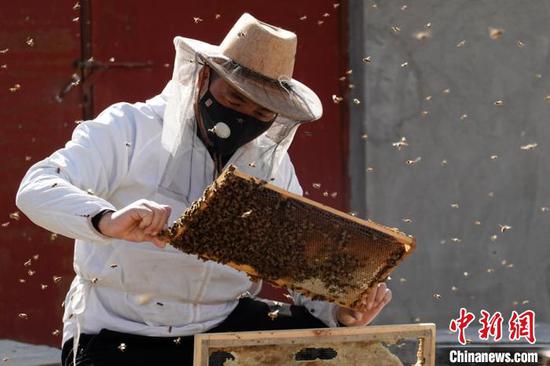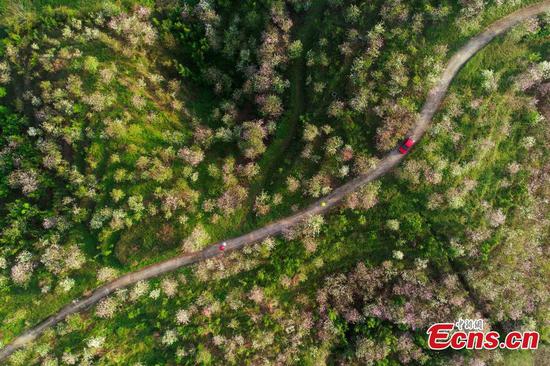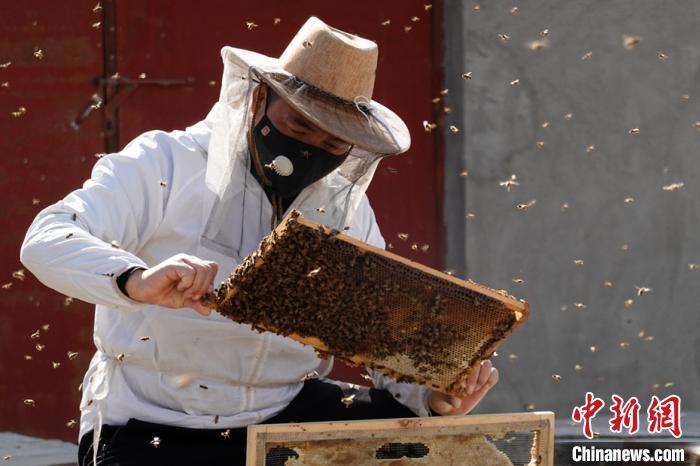
A farmer works in a bee breeding base in Bayingolin Mongol autonomous prefecture in Northwest China's Xinjiang Uygur autonomous region in March, 2020. Local farmers are getting busy as bees enter a mating season. The prefecture now is home to 170 beekeeping households who breed 46,000 colonies of bees. (Photo: China News Service/ Que Hure)
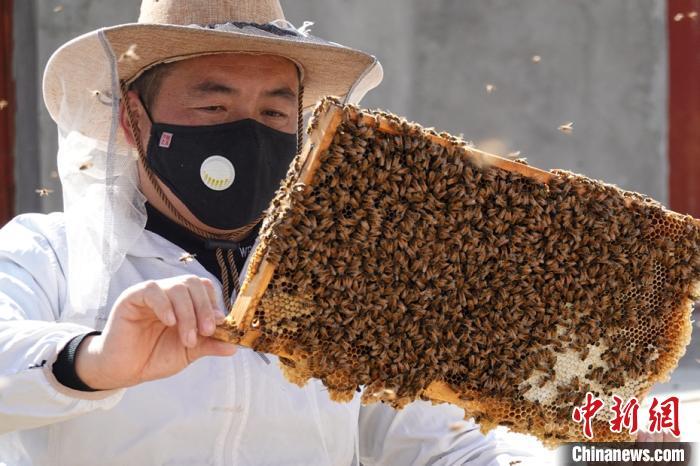
A farmer works in a bee breeding base in Bayingolin Mongol autonomous prefecture in Northwest China's Xinjiang Uygur autonomous region in March, 2020. Local farmers are getting busy as bees enter a mating season. The prefecture now is home to 170 beekeeping households who breed 46,000 colonies of bees. (Photo: China News Service/ Que Hure)
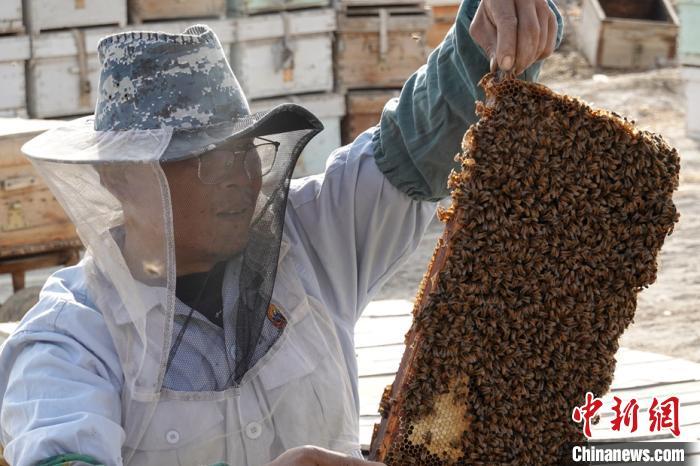
A farmer works in a bee breeding base in Bayingolin Mongol autonomous prefecture in Northwest China's Xinjiang Uygur autonomous region in March, 2020. Local farmers are getting busy as bees enter a mating season. The prefecture now is home to 170 beekeeping households who breed 46,000 colonies of bees. (Photo: China News Service/ Que Hure)
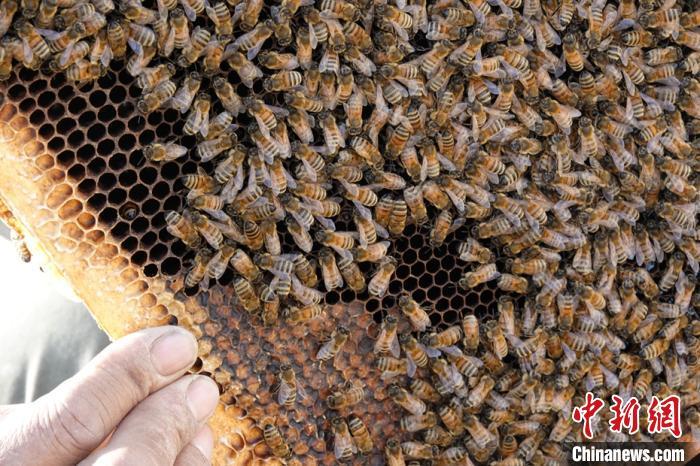
A farmer works in a bee breeding base in Bayingolin Mongol autonomous prefecture in Northwest China's Xinjiang Uygur autonomous region in March, 2020. Local farmers are getting busy as bees enter a mating season. The prefecture now is home to 170 beekeeping households who breed 46,000 colonies of bees. (Photo: China News Service/ Que Hure)












